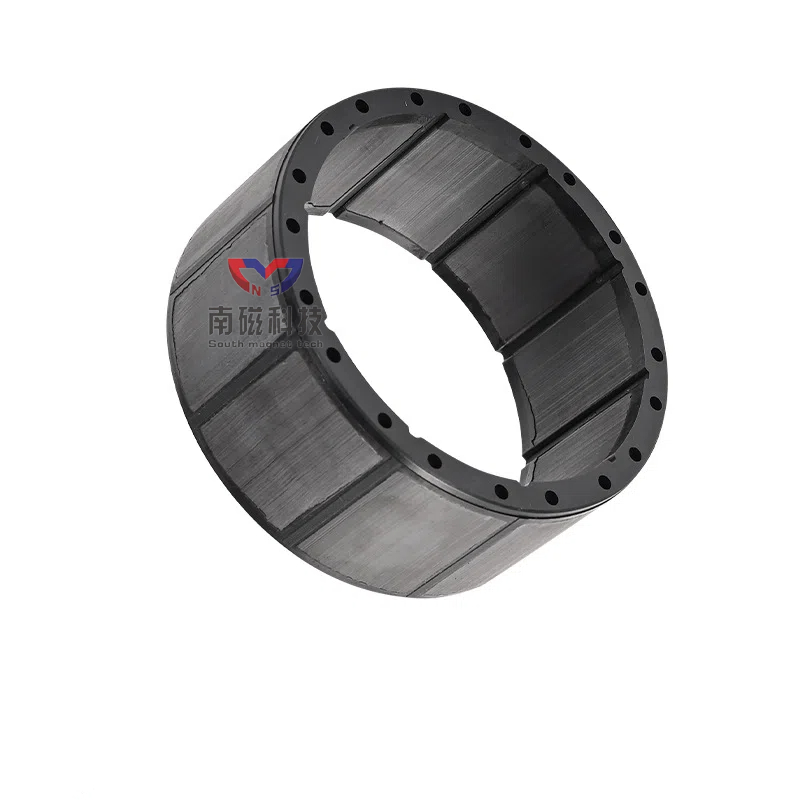As the requirements for "controllability and stability" of drives in various industries continue to increase, DC motors have become core drive components in industries such as industry, transportation, home appliances, and medical care due to their characteristics such as "wide speed regulation range, good starting performance, and simple control." They provide precise power support for various equipment and address the pain points of traditional motors—"difficult speed regulation and insufficient torque."

Industrial production lines have strict requirements for "controllability" of drive components, and the speed regulation advantage of DC motors is particularly prominent:
DC motors are mainly used in precision machine tool feed systems, production line conveyors, and material sorting equipment. Via DC speed controllers, they can achieve smooth speed adjustment from 0 to rated speed. For example, during machine tool processing, the spindle speed can be precisely controlled according to part materials and cutting processes, avoiding processing errors caused by speed fluctuations;
For heavy-load starting scenarios (e.g., heavy material conveyors), the high starting torque of DC motors can quickly drive equipment to operate without additional assist devices, reducing production line startup delays and meeting the needs of continuous industrial production.
Short-distance transportation and warehouse logistics equipment need drive solutions with "high torque and flexible control," and DC motors have strong adaptability.
Typical applications include electric forklifts, AGV (Automated Guided Vehicle) robots, and small electric scooters. DC motors can provide enough torque when starting up, and this ensures fully loaded forklifts start stably. And for AGVs, they can achieve precise start-stop and steering through DC motors—this lets them fit narrow-aisle operations in warehouses.
When you compare DC motors with AC motors, DC motors have simpler control circuits. So they are easy to integrate into small transportation equipment. This reduces the equipment’s size and weight, and this makes the equipment more mobile and flexible.
Household equipment has clear demands for "compact size and low noise" in drive components, making DC motors the preferred choice:
DC motors are widely used in washing machine drum drives, vacuum cleaner motors, and indoor air conditioner fans. For example, DC inverter washing machines adjust motor speed to get different washing modes (quick wash, gentle wash). They also make less noise than traditional AC motors, which improves home comfort;DC motors are more energy-efficient. They save 15%-20% more energy than AC motors when working under the same conditions. This fits with the “low-carbon energy efficiency” development trend of home appliances, and it also reduces user operating costs.
Medical equipment has extremely high requirements for "stability and controllability" of drive components, and DC motors provide reliable support:
DC motors are core components in ventilator fans, hemodialysis machine pumps, and medical centrifuges. For example, ventilators use DC motors to precisely control airflow speed and pressure, adapting to the breathing needs of different patients;
DC motors operate with minimal speed fluctuations, avoiding parameter deviations in medical equipment caused by unstable drives and ensuring the safety of diagnosis and treatment processes. Meanwhile, their low-vibration characteristics reduce equipment operating noise, creating a quiet medical environment.
| Application Field | Core Application Equipment | Core Motor Advantages | Addressed Industry Pain Points |
|---|---|---|---|
| Industrial Automation | Precision machine tools, production line conveyors | Precise speed regulation, high starting torque | Processing errors from speed fluctuations, difficulty in heavy-load startup |
| Transportation | Electric forklifts, AGV robots | High torque, simple control | Large equipment size, inflexible steering |
| Home Appliances | Washing machines, vacuum cleaners | Compact size, low noise, energy efficiency | High noise, high energy consumption |
| Healthcare | Ventilators, hemodialysis machines | Stable operation, low vibration | Equipment parameter deviations from unstable drives, noise interference |
Currently, DC motors are evolving toward "permanent magnetization and intelligentization": Permanent magnet DC motors are smaller and more efficient, and they adapt to the needs of small equipment; also, some products integrate intelligent control modules. These modules support remote monitoring of speed and fault early warning, which helps further enhance application convenience.And as core components for precise drives, DC motors continue to provide power support for equipment upgrades across multiple fields. This drives the efficient development of industries.